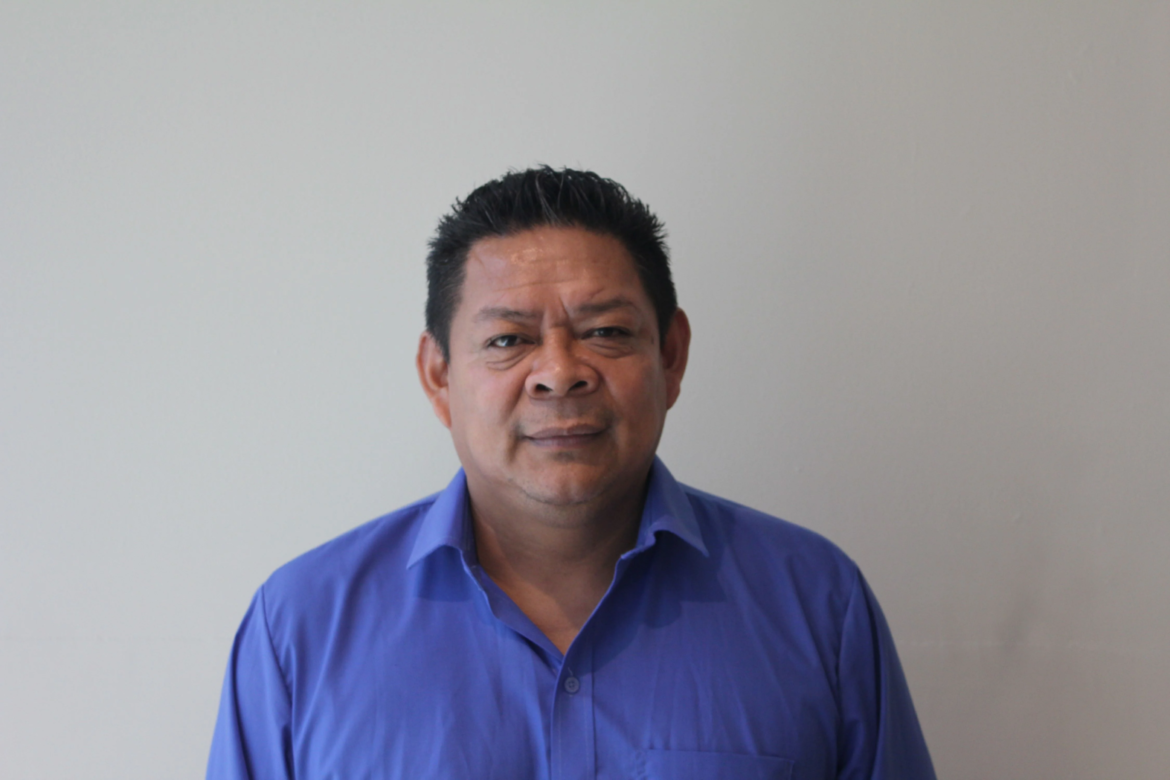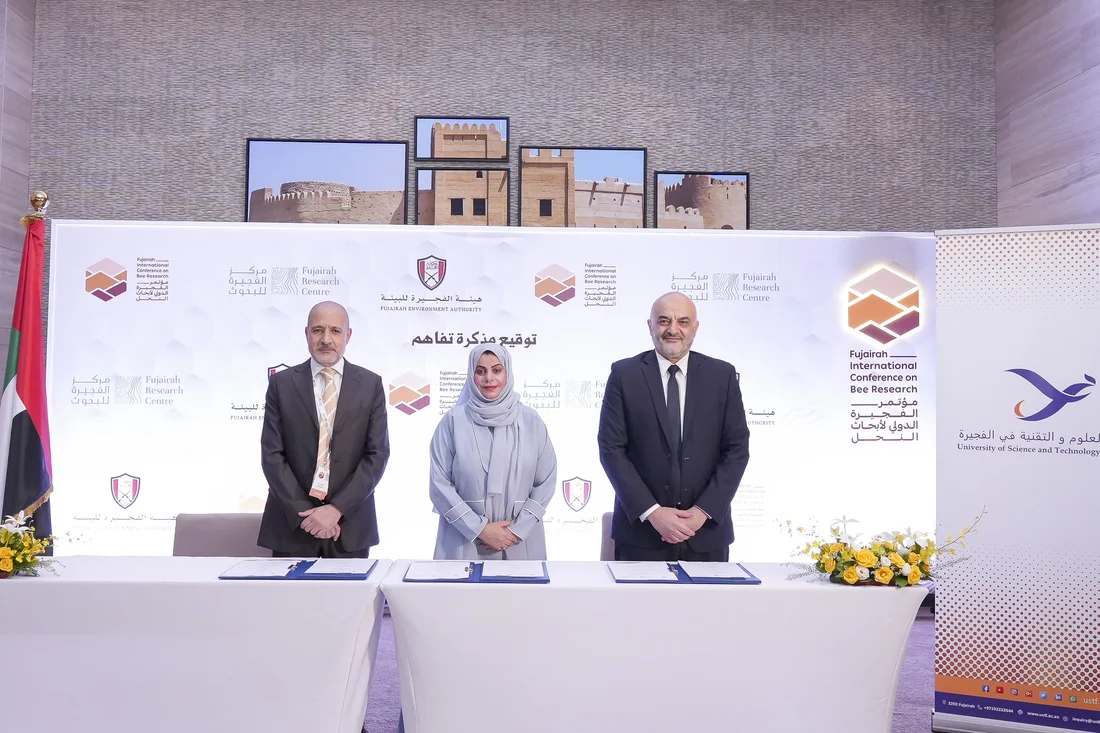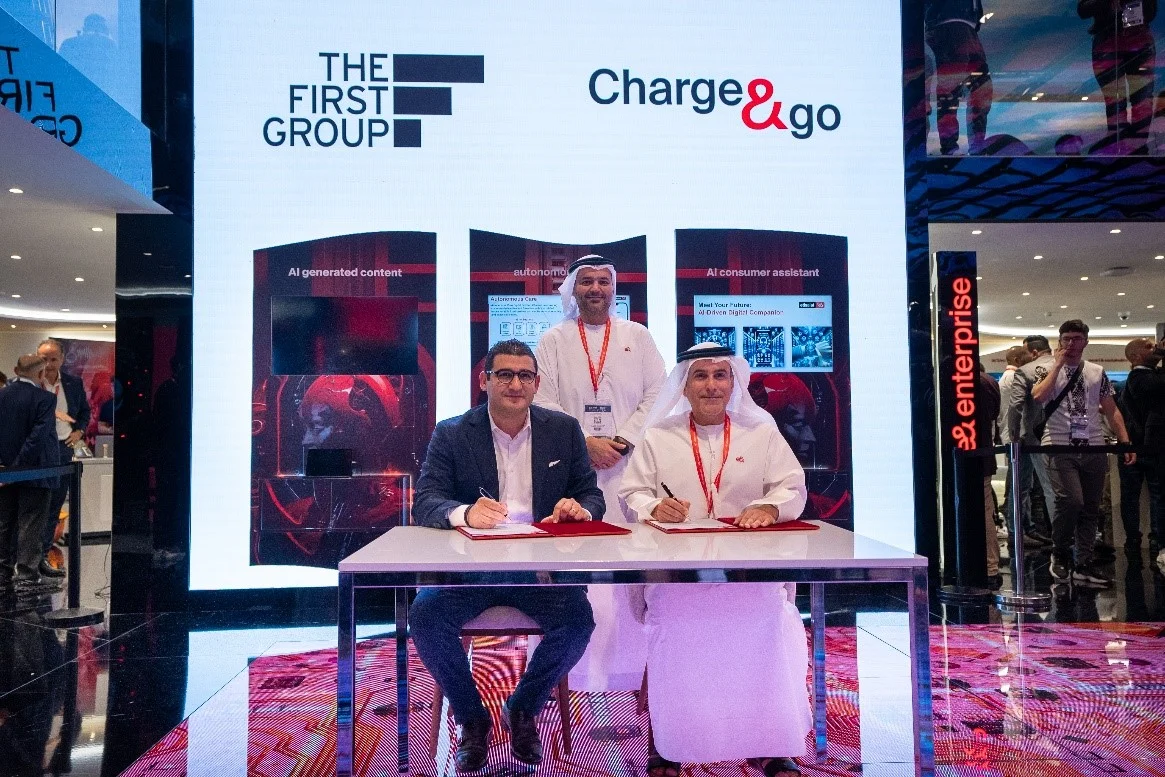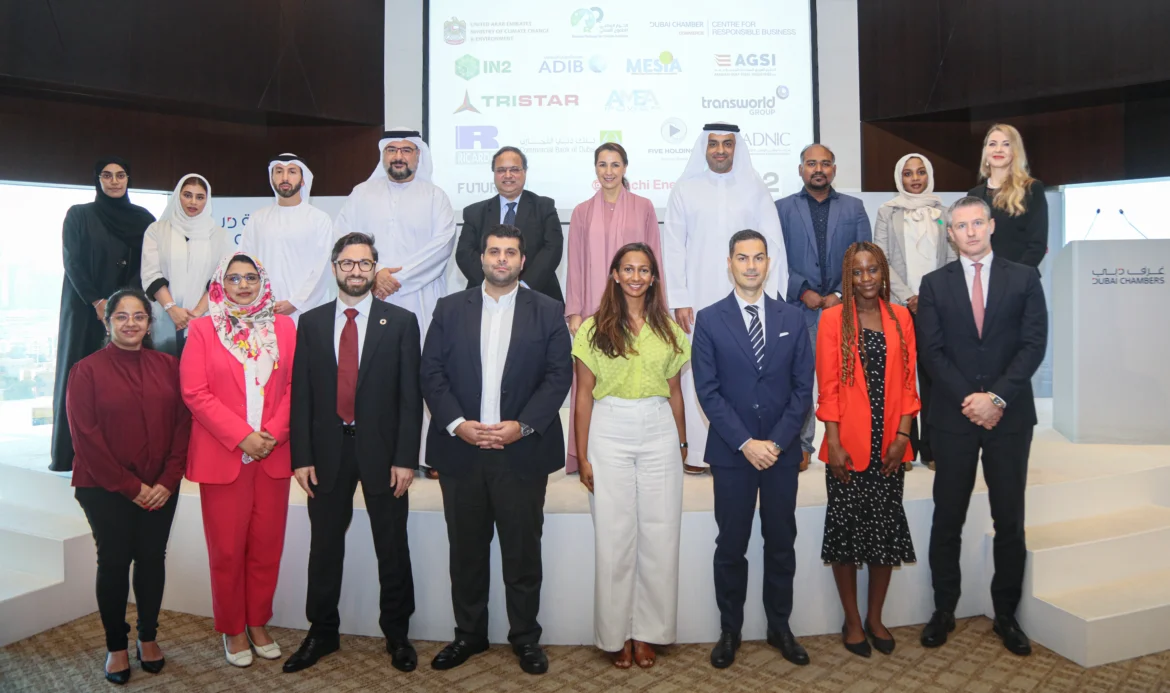Monthly Archives
October 2023
Plastic Bank reaches global milestone with 100 million kilograms of plastic collected
written by Madaline Dunn
Plastic Bank has announced it has reached the milestone of stopping over 100 million kilograms of plastic waste from reaching the surrounding environment. This is equivalent to 5 billion 500ml plastic bottles prevented from contributing to the growing crisis of plastic pollution.
In Egypt, Plastic Bank has 28+ collection centres across 11 governorates that contributed more than 13 per cent of collection to the 100 million kilograms milestone.
These Egyptian communities have gathered the equivalent of 500 million plastic bottles in just three years.
Out of the 40,000 plus collection members, 2,100+ collection members are from Egypt. Plastic Bank said that these people are “not only cleaning up their environment” but also “transcending poverty” by exchanging plastic waste for secure income and life-improving benefits.
“This isn’t just a dream; it’s a remarkable achievement of our recycling communities who gathered each piece by hand, carving their own paths out of poverty with it,” announced David Katz, the visionary Founder and Chairman of Plastic Bank.
“We stand at a crossroads. We can either continue down the path of consumerism, or we can embark on a profound journey of regeneration,” he added.
“The milestone achieved isn’t just about plastic; it’s about what humanity can accomplish when united by a common purpose,” said Katz, crediting the recycling communities, partners, individuals and Plastic Bankers who made it possible.
“We’re inviting the world to join us in rewriting our planet’s destiny, in creating a world where every transaction empowers us to regenerate resources, rejuvenate the environment, and liberate recycling communities from the grip of poverty.”
Plastic Bank said that since its inception, its Social Recycling movement has “spread like wildfire,” igniting the spirits of more than 550+ communities across Southeast Asia, Latin America, and Africa.
Dubai Municipality tests self-driving EV to clean up bicycle trails on Dubai’s beaches
written by Madaline Dunn
Dubai Municipality has initiated the testing phase of a self-driving electric vehicle dedicated to cleaning bicycle routes along the beaches of Jumeirah and Umm Suqeim.
This is part of its efforts to preserve the hygiene and sustainability of all touristic facilities in Dubai, including public beaches, as well as to enhance its beauty and appeal by leveraging the latest technologies such as automated and electric cars.
Classified as a smart sweeper, the new self-driving vehicle features cutting-edge technological and technical specifications such as smart sensors that enable it to avoid obstacles, ensuring a higher productivity rate as compared to manual cleaning.
It further ensures the ability to work eight hours continuously per charge, a maximum speed of 40 kmph in normal mode.
Dubai Municipality launched five large-scale sweepers with smart and advanced technology earlier this year to sweep roughly 2,250 kilometres of fast and outdoor roadways in Dubai every day.
It has enhanced its 752-vehicle automated waste operations management fleet with a variety of automated sweepers and pavement and road cleaning equipment, chopping equipment, and large-scale agricultural waste shredding and processing equipment for plantations, public parks, and tree residues.
Dubai Municipality has assigned a field team of 12 staff to supervise 72 cleaners working on a regular basis and around the clock to keep Dubai’s public beaches clean. It also equipped the team with 13 new mechanisms and equipment to improve communication and emergency response time.
Ministry of Finance and ADCCI discuss enhancements to business sector and government work
written by Madaline Dunn
The Ministry of Finance recently convened with the Abu Dhabi Chamber of Commerce and Industry (ADCCI) at the Ministry’s headquarters in Abu Dhabi.
His Excellency Younis Haji Al Khoori, Undersecretary of the Ministry of Finance, and His Excellency Ahmed Khalifa Al Qubaisi, CEO of Abu Dhabi Chamber of Commerce and Industry, attended the meeting to cooperate in creating a conducive environment for businesses, which enhances governmental work and is in line with the UAE’s directions and strategies.
Ahmed bin Sulaiman, Director of Public Debt Management Office, Azza Al Jasmi, Director of Government Communication Department, and Ibrahim Al Jarwan, Director of GCC Affairs, represented the Ministry of Finance at the meeting. From the Abu Dhabi Chamber’s side, attendees included Dr. Latifa Al Ameri, Acting Executive Director of the Relationships and Membership Affairs Sector, Hilal Al Hamli, Advisor for Special Task Development, Mohammed Al Sabbagh, IT Advisor, Aref Al Fara, Economic Advisor. Several specialists from the Ministry and the Chamber also were in attendance.
As he welcomed the attendees, His Excellency Younis Al Khoori said: “The Ministry of Finance seeks to establish effective communication to create a supportive environment that elevates the levels of governmental work in line with the directions and strategies of the UAE.”
His Excellency added: “The Ministry of Finance prioritises national talents, developing their competencies, and refining their skills in finance, taxation, and other domains. This approach aligns with the nation’s directives and commitment to develop the business environment and diversify the strategic sectors. Such endeavours will contribute to boosting competitive efficiency and advancing the UAE’s growth and prosperity.”
His Excellency Ahmed Khalifa Al Qubaisi said: “At the Abu Dhabi Chamber, we remain committed to strengthening our cooperation with public and private entities with the aim to bolster economic growth and promote investment opportunities within Abu Dhabi. Our strategic goals revolve around supporting the growth of the private sector and facilitating doing business in Abu Dhabi, where our collaboration with the Ministry of Finance is vital. Through our constructive discussions, we seek to identify our shared interests and the necessary mechanisms to provide the private sector with the right initiatives to encourage investment, growth, and operational development, in addition to upholding global financial and taxation standards in Abu Dhabi and the wider UAE.”
The Ministry of Finance’s team reviewed six topics – partnership with the private sector, the Treasury Bonds Programme, joint Gulf economic work, double taxation agreements and investment promotion and protection agreements, and relations with regional and international organisations, and areas of collaboration with ADCCI.
The pillars of cooperation between the Ministry of Finance and the Abu Dhabi Chamber of Commerce and Industry are based on the Ministry’s strategy. This strategy aims to strengthen relations with international institutions and organisations and qualify Emirati youth, enabling them to engage at the highest levels in international financial organisations.
The 12th edition of the Middle East Retail Forum (MRF) 2023, hosted by IMAGES RetailME, recently concluded, offering insights into the future of the retail market in the GCC region. The event also celebrated and acknowledged key players who have made significant contributions to the retail industry through innovation and trendsetting initiatives.
MRF 2023, one of the largest events on the IMAGES RetailME calendar, brought the retail industry stalwarts together to discuss the future and evolution of the $308 billion retail industry.
The event recently took place at the Address Dubai Marina under the theme ‘Innovate. Collaborate. Transform’, which saw retail leaders discuss the trends driving the industry forward.
This year’s forum saw more than a hundred seasoned retail experts convening to shed light on the technological transformations and commemorate the substantial growth witnessed within the billion-dollar Middle Eastern retail industry, exploring the potential of newer markets such as Saudi Arabia.
The panel discussions predominantly revolved around sustainable and socially responsible business models, while celebrating the expansion of indigenous retail brands in the region.
Commenting on the forum, Amitabh Taneja, Chairman and Editor-in-Chief of IMAGES Group, emphasised the importance of innovation, collaboration, and transformation in the realm of retail. “Retail is a culmination of many moving parts and retailers stitch these parts with innovation through meaningful collaboration and taking the right approach to transform their growth narrative. We at IMAGES RetailME have always acted as a catalyst for important conversations within the retail sector, encouraging retailers to collaborate for change and growth. MFR 2023 was a testament to these efforts, bringing forth discussions on innovation and best practices in the retail business.”
Talking about the growing opportunities in the Middle East region, John Hadden, CEO, Alshaya Group, said: “Amidst vast opportunities, the Middle East stands out as a thriving retail hub. With 90% of our revenue coming from key countries like Saudi Arabia, Turkey, the UAE and Kuwait, our journey in the region continues to flourish. Notably, we’ve seen significant growth in female workforce participation in Saudi Arabia, while the expanding presence of Starbucks amid healthy competition is driving our ambition further. Our plan is to open 250 more outlets annually, aiming for 3,000 outlets in the next five years from the current 2,000.”
Meanwhile, commenting on customer behavioural changes, Rajat Asthana, COO, Eros Group opined: “Acknowledging the digital era, we understand that technology profoundly influences customer behaviour, as e-commerce platforms reshape retail, empowering well-informed customers who seamlessly transition between online and offline, seeking value.”
It was also highlighted that challenges remain as retailers seek to offer hyper-personalised customer experience. In this context, Fahed Ghanim, CEO Lifestyle, Majid Al Futtaim said: “We believe embracing innovations and providing customer centric product and services have been always crucial, even more so now. Today, we need more advanced technology and tools for personalised customer insights through data collection, to enhance customer engagement and stay adaptable to change.”
Staying with the role of technology, Neeraj Teckchandani, CEO & Director of Apparel Group shared his thoughts on data optimisation. “Data is invaluable. AI has empowered us in various departments, from HR and Marketing to Legal and Finance, with tools like ChatGPT helping us optimise our business for over 100 million users. Our success is rooted in understanding the customer journey and utilising data to deliver an exceptional experience. The results have been outstanding.”
Offering a glimpse into the growth prospects in the Kingdom of Saudi Arabia, Dr. Günther Helm, Chief Executive Officer – Cenomi Retail, said: “We see the Saudi and UAE markets as having immense growth potential, especially in Saudi Arabia, where there are multiple ways to tap into opportunities. Saudi Arabia has been embracing new technological trends, and success requires adapting to diverse customer expectations. It’s essential to recognize the ongoing importance of human labor alongside AI when navigating the market. So, I believe the challenge is to train the workforce to maximize the benefits of AI-powered technology.”
Commenting on Spinney’s expansion to the Saudi Arabian market, Sunil Kumar, CEO, Spinneys said: “As Spinneys approaches a century of operations in the region by 2024, we’re excited about our 60-year history in the UAE and our upcoming entry into the Saudi Arabian market, beginning in Riyadh in 2024. It’s both a challenge and an opportunity, as research shows that the top 10 retailers in Saudi Arabia only hold 23% of the market share, offering substantial growth potential. While we’re starting from scratch, we’re determined to build our presence, aiming to make a significant impact in the KSA market over the next 5-10 years.”
Hosting the discussion on the evaluation of retail, Keynote speaker Chris Chong, CEO, Retail & Workspace, CapitaLand, commented: “Honoured to be invited as a keynote speaker to share insights on future trends and the transformation of retail at this prestigious event in Dubai. It was a remarkable experience to exchange ideas and engage with valued leaders and visionaries of the sector. I look forward to closer collaborations with the retail community across the GCC region as we shape the future of retail together.”
Vic Bageria, Founder & CEO of Xpandretail, powered by Sàvant Data System, highlighted the significant role of technology and data in enhancing the retail industry’s potential. “Technology implementations and harnessing the potential of data have injected excitement at every phase of retail. Through our partnership with MRF, we’ve fostered vital discussions around AI and the transformative force of data in the industry. What’s intriguing is that today, every category and sector of retail is wholeheartedly embracing data to enhance their processes.”
Sweety Lulla, General Manager of Operations at CION Lighting Technologies, expressed her gratitude for being part of the MRF for the third consecutive year.” As we participate in the forum for the third consecutive year, we extend our sincere gratitude to Images RetailME for their meticulous event planning. We eagerly look forward to continued participation in the future. The entire team’s dedication was evident in creating an event that brought together retail pioneers, showcased the latest technological advancements, and facilitated meaningful discussions on making retail a customer-centric experience. The Gala Awards, a truly special occasion, have grown in grandeur over time.”
Like every year, the IMAGES RetailME Awards followed MRF. Having received many nominations from retailers in the region, these were reviewed by a qualified panel of jury members.
During the gala ceremony, more than 27 awards were presented. These awards recognised the achievements of retailers in the region who have shown the courage to think out of the box and introduce innovative retail concepts.
The recent Climate Week NYC, which convened corporate leaders, policymakers, scientists, and others to discuss climate solutions and drive progress toward decarbonization, underscored how forests have become big business. The fast-growing voluntary carbon market, where companies purchase nature-based offsets to compensate for their emissions, was worth $2 billion in 2021 and could reach $10-40 billion by 2030. Some even see forest preservation and restoration as a silver bullet for climate change.
But for indigenous communities, including my tribe in the Colombian Amazon, the arrival of carbon traders marked the start of a troubled history: dubious deals, land grabs, and violent evictions in contested territories. Our collective experience raises serious questions about the integrity of a market that is poised to expand across Latin America and Africa, as the world’s largest companies increasingly rely on forest-based offsets to reach net-zero emissions.
To be sure, carbon offsets (also known as credits) were a good idea. Companies, using market mechanisms, could cancel out their carbon dioxide emissions by recognizing indigenous communities’ superior conservation practices and paying them to prevent deforestation. The mechanism also reflects the importance of forests as natural carbon sinks that can contribute more than one-third of the mitigation required to meet the Paris climate agreement’s goals by 2030.
The unregulated and opaque market that emerged, however, has major design flaws. Recent research by the Berkeley Carbon Trading Project shows that Verra, the world’s leading carbon-crediting program, has given project developers the freedom to cherry-pick methodological approaches to maximize the quantity of credits they can receive. This has resulted in offset schemes that absorb far less carbon than promised – or none at all.
Even projects that represent genuine carbon reductions are not without controversy. The Alto Mayo in the Peruvian Amazon, which accounted for 40% of Disney’s offsets between 2012 and 2020, has successfully stopped some deforestation, but not without generating ill will by violently evicting forest communities.
How did a good idea go so wrong? Weak regulation is largely to blame. Carbon-credit dealers – often called “carbon cowboys” – target indigenous communities across Latin America and Africa, sweet-talking them into signing away their rights to the carbon in their forests. The contracts are almost always exploitative, ranging from 100-year irrevocable commitments to terms that award the dealers half of the income earned from carbon credits.
Some dealers have embraced a more aggressive approach. When TotalEnergies seized land from farmers in Congo for a reforestation scheme, it paid some around $1 per hectare and others nothing; women farmers reported being chased away from their fields by men in trucks. The document that the farmers signed described any payment as “symbolic” and made “with a view to clearing their rights of use” to the land.
Carbon-offsetting projects are often carried out in jurisdictions with complex land-rights issues that require diligence, precision, and knowledge of indigenous people’s customary land rights. But in the “Wild West” carbon market, where speed is of the essence, deals are made with little concern for history, culture, or rights. That puts indigenous communities like mine in a precarious position.
Meanwhile, the corporate appetite for forest-based carbon credits continues to grow. As businesses come under intense pressure to meet net-zero targets, buying offsets is far easier and more expedient than reducing their own emissions. And when this voracious demand collides with a disorganized and loosely regulated market, brokers are willing and able to create credits by any means necessary, regardless of the climate impact.
The voluntary carbon market’s widespread greenwashing is particularly galling. While many offset schemes overstate the amount of carbon that they capture, an investigation by The Guardian, Die Zeit, and SourceMaterial, a nonprofit investigative journalism organization, concluded that a whopping 94% of Verra’s rainforest offset credits yielded no benefit to the climate.
Guyana’s unprecedented carbon scheme has faced similar scrutiny. Earlier this year, the Hess Corporation, which was granted a concession for oil exploration off the coast of Guyana, purchased $750 million worth of forest-based carbon credits from the country. But indigenous peoples have watched over these forests for centuries, and the threat of deforestation is very low. In fact, the project permits a level of deforestation that is higher than the country’s historic levels. Activists point to the climate damage caused by greatly exaggerated emissions-reduction claims, especially in South America’s newest oil-producing country, while some indigenous communities say the authorities have sold off what is not theirs to sell.
Indigenous peoples should be fairly compensated for the important work that we do to safeguard forests. Instead, the current system has forced us to contend with volatile offset prices, extractive brokers, and markets that disregard human rights. Even the regulatory framework for carbon markets being developed by the United Nations – which could set a dangerous precedent for all other standards – does not yet account properly for human rights.
An incremental approach to reform will not be enough to restore the voluntary carbon market’s credibility. Funding for forest-protection schemes must be strictly regulated, based on credible science, and impervious to companies’ demand for easy offsets. Forest communities like mine must be provided with long-term financial security and a seat at the decision-making table, not in the observers’ gallery.
Nature-based carbon-offset schemes get some things right: we must look to forests as a tool for mitigating global warming and pay the people who protect them. As it stands, however, the voluntary carbon market is riddled with shortcomings, resulting in forest-protection schemes that inflate their climate impact and exploit local communities. The time is right for a radical overhaul.
Mateo Estrada is Lead Advocacy Strategist at the Organization of Indigenous Peoples of the Colombian Amazon.
© Project Syndicate 1995–2023
www.project-syndicate.org
Fujairah Research Centre and Fujairah Environment Authority share alliances with academic and beekeeping entities
written by Madaline Dunn
During the recently concluded Fujairah International Conference on Bee Research, Fujairah Research Centre (FRC) and Fujairah Environment Authority (FEA) announced the signing of three Memorandums of Understanding (MoUs) with esteemed partners: The University of Science and Technology of Fujairah, Beekeepers Cooperative Association-Albaha, and UAE Beekeepers Foundation.
This strategic collaboration aims to foster cooperation in innovation, research, and development, with a primary focus on joint projects in education and training programs related to beekeeping. The signatories are committed to preserving native bees, protecting the environment, water resources, and minerals, aligning with the strategic goals of the authority.
Among the key highlights in the MoUs, the Parties outlined their intentions to engage in impactful research and development, beekeeping training, and capacity building. The scope of activities includes, but is not limited to, enhancing knowledge and skills in the practice of sustainable beekeeping; a shared commitment to the preservation of native bee species, crucial for ecological balance; exploring methods and practices that promote sustainable and ethical honey production; and advocating for and implementing agriculture practices that support pollinator populations.
Expanding beyond bee-related initiatives, the Parties also committed to performing research and development, student training, and capacity building in various fields, including Environment Conservation, IT, Data Science & Computing, Artificial Intelligence (AI), Renewable Energies, Underwater Robotics & Automation System, Computer Vision (CV) and Imaging and Video Processing.
The parties will also focus on developing strategies for effective monitoring and management of beehive health and have mutually agreed to equally provide necessary support and services, with specific details to be negotiated annually. This collaborative effort signifies a dedication to the responsible execution of outlined responsibilities, ensuring the success of joint initiatives.
“At Fujairah Environmental Authority, we are dedicated to safeguarding the delicate balance of our ecosystem. These Memorandums of Understanding with our partners mark a significant step forward in realizing this commitment. By pooling our resources and expertise, we are better positioned to advance research in beekeeping, native bee conservation, and environmentally friendly practices. Together, we can create lasting positive impact on our environment, supporting biodiversity and ensuring a sustainable future for generations to come,” said H.E Aseela Al Mualla, Director of Fujairah Environment Authority.
“The Fujairah Research Centre is thrilled to embark on these collaborative ventures with our partners. These MoUs reflect our commitment to advancing research and innovation in beekeeping, fostering education, and contributing to the preservation of our natural resources. Together with the University of Science and Technology of Fujairah, Beekeepers Cooperative Association-Albaha, and UAE Beekeepers Foundation, we are committed to making significant strides in sustainable development and environmental stewardship,” commented Dr. Fouad Lamghari, Director of Fujairah Research Centre.
This collaboration marks a significant milestone in advancing research, education, and sustainable practices in beekeeping and environmental conservation.
The MoUs serve to reiterate the parties’ commitment to the timely execution of all necessary acts and procedures to bring the provisions and purpose of the MoUs into full effect.
The First Group and Charge&Go to launch Dubai’s first hotel E.V. charging stations
written by Madaline Dunn
The First Group has announced a partnership with Charge&Go, an E.V. solution by e&. Through the partnership, the Group will be installing Electric Vehicle (E.V.) charging stations at its six hotels, making it Dubai’s first hospitality company to embrace this forward-looking practice for the environment.
The E.V. charging stations will be located across six of the brand’s properties – The First Collection at Jumeirah Village Circle, The First Collection Business Bay, Tryp by Wyndham Dubai, Wyndham Dubai Marina, Citadines Metro Central Dubai, and Grand Heights.
The E.V. charging stations will feature cutting-edge rapid charging technology, ensuring that E.V. owners can recharge swiftly and return to the road without lengthy delays. Its universal compatibility will also be able to charge a wide range of electric vehicle makes and models. In addition, the company said that the “user-friendly interface” and payment options will make the charging experience a “convenient and easy process for all E.V. users.”
Muammar Nasir Al Rukhaimi, C.E.O., Etisalat Services Holding (ESH), a subsidiary of e& said: “This partnership demonstrates our dedication to ‘Charge&Go’ and our support for electric mobility in U.A.E. We are committed to leading the conversations on sustainability and exploring the limitless possibilities with technology. Today, innovation goes beyond ground-breaking products and solutions; it also involves making choices that benefit the environment and generations that will inherit this planet from us.”
“We take great pride in this significant milestone alongside our valued partner, Charge&Go as it exemplifies our commitment to sustainability within the dynamic realm of hospitality. As the U.A.E. steers towards a sustainable economy, we acknowledge our key role as a partner in shaping an environmentally conscious future. This initiative underscores our commitment to being catalysts of positive change and responsible stewards of our environment”, commented Rob Burns, C.E.O., The First Group.
“Offering E.V. charging stations makes our hotels a hassle-free option for electric vehicle owners and allows our guests and partners to support a cleaner and greener future with us,” says Karim Abdelhamid, V.P. – Hotel Operations, The First Group.
“Such robust sustainability strategies have helped us achieve a substantial reduction in The First Group’s carbon footprint, anchoring our corporate values with worldwide environmental priorities. As we continue to serve the discerning corporate traveller, we remain determined to continue pioneering new benchmarks in sustainable practices and operational excellence.”
Her Excellency Mariam bint Mohammed Almheiri, UAE Minister of Climate Change and Environment, yesterday called on businesses from across the UAE’s extensive retail sector to embed sustainability throughout their operations, raise the bar on climate ambition, and drive positive behavioural change from consumers in the process.
Speaking at the 13th National Dialogue for Climate Ambition (NDCA), a monthly stakeholder forum organised by the Ministry to raise sector climate ambition and advance all-inclusive participation, Her Excellency underlined the influential role the UAE’s retail sector can play in achieving the nation’s Net Zero by 2050 goal.
Hosted at Dubai Chambers, the sponsor of the annual Retail Summit, a global gathering of retailers and sectoral experts, Her Excellency welcomed the signatures of 13 more businesses to the UAE Climate Responsible Companies Pledge. This brings the overall total to 131.
The pledge is a commitment to embedding sustainability in their operations and inspiring customers and partners to embrace sustainable action.
H.E. Almheiri said: “For the UAE to meet its climate goals we need every part of the economy working towards creating a greener future – and that includes retail. I welcome 13 more signatories of the UAE Climate Responsible Companies Pledge, which underline their commitment to climate action. At COP28 next month, UAE businesses will not be sitting on the sidelines. They will be front and centre, showcasing sustainable action, innovation, and ambition. They will show that business must be part of the climate solution.”
Reports show that global retail supply chains are responsible for 25 per cent of global emissions and 40 per cent of plastic usage worldwide. Further, today, the world produces twice the plastic compared to two decades ago – and just 9 per cent is recycled.
Addressing how the retail sector views and manages both emissions and plastic usage is an important part of the UAE’s strategic vision and climate goals.
“Addressing how the retail sector views and manages both emissions and plastic usage is a strategic imperative for climate action,” said HE Almheiri. “This is also because less than 20 percent of retailers are on track to supporting the world in meeting the goals of the Paris Agreement. Here in the UAE, we are fortunate to not only have a very strong leadership steer and commitment but also such an inspiring business community that is ready to convert climate action as a tangible reality.”
She added: “We must also support customers make the green transition and change behaviour. We can do this by enabling retailers, consumers and supply chains move in the same direction towards sustainability. A move that is in everyone’s interests. Businesses that are embracing the green transition are feeling the economic benefits. From jobs to technological efficiencies, sustainable practices can help drive growth. The UAE, through its Green Agenda 2030 is encouraging businesses to grow in a more sustainable way.”
The Minister concluded her speech by stressing that businesses that are embracing the green transition are experiencing the economic benefits, and that a move towards a greener future must allow all businesses to take advance of these opportunities.
She highlighted that the UAE, through its Green Agenda 2030, is encouraging businesses to grow more sustainably through awareness and incentive schemes for businesses such as supporting green manufacturing; encouraging the use of alternative fuels; promoting green jobs to fresh graduates.
The 13 businesses that have newly signed the UAE Climate Responsible Companies Pledge are: Abu Dhabi Islamic Bank (ADIB); Tristar; Transworld; Arabian Gulf Steel Industries (AGSI); Future Glass; FIVE Holdings; HITACHI; IN2 Communications; M42 Mubadala Health; Middle East Solar Industry Association (MESIA); Abu Dhabi National Insurance Company (ADNIC); AMEA Power; Commercial Bank of Dubai (CBD); and Ricardo.
The National Dialogue for Climate Ambition (NDCA) is an initiative launched by the Ministry of Climate Change and Environment (MOCCAE) as a platform to define and raise sectoral climate ambition and advance participation in the UAE’s Net Zero by 2050 Strategic Initiative. The 13th session was titled ‘Shifting to A Responsible Consumer Behavior in the Retail Industry’. Discussions and roundtables covered topics including, ‘Greening Retail’ and ‘Driving Retail Towards Net Zero: Opportunities, Incentives and Challenges’. Speakers included Omar Khan, Head of Center for Business Studies and Research, and Mohammad Lootah, President and CEO of Dubai Chambers.
Among the multiple crises that have erupted around the world, the avoidable tragedy of growing hunger receives only fleeting mention. And any attention that it does attract is apparently not enough to prompt global policymakers to act.
Yet a new report from the Food and Agriculture Organization (FAO) of the United Nations makes for grim reading. According to the State of Food Security and Nutrition in the World 2023, an estimated 42% of the world’s population – more than 3.1 billion people – were unable to afford a healthy diet in 2021. Moreover, global hunger is still far above pre-pandemic levels, with around 122 million more people facing food insecurity in 2022 than in 2019, and is on the rise throughout Africa, Western Asia, and the Caribbean, owing partly to higher prices.
At the national level, a worrying pattern can be seen: the countries with the largest increases in food insecurity are also those engulfed in debt crises and experiencing the severest effects of climate change.
Hunger reflects the interplay between food supply, purchasing power, and prices. Supply depends on domestic production, which can be affected by extreme weather and conflict, and on a country’s ability to import foodstuffs, which can be undermined by high transport costs and foreign-exchange constraints. The purchasing power of households and individuals is determined by the availability of income-earning opportunities; money wages and earnings from self-employment relative to food prices; and the extent of social protection, for example through public provision of essential items. Food prices, meanwhile, are driven largely by national and international trade patterns.
But, as I argued earlier this year, now there is a growing awareness of the concentration of power in agribusiness and the ability of the sector’s behemoths to influence global food prices. In addition, speculative activity in commodity futures markets can affect food prices in spot markets.
Both factors were addressed in detail in the Trade and Development Report 2023, published by the United Nations Conference on Trade and Development, which confirms that “corporate profits from financial operations appear to be strongly linked to periods of excessive speculation in commodities markets and to the growth of shadow banking.” The report goes on to recognize that “during periods of heightened price volatility, certain major food trading companies gain amplified profits in the financial markets.”
Speculative activity is short-lived by nature. Thus, the sharp spike in global food prices (particularly for wheat) that began in late 2021, during the run-up to the Ukraine war, peaked in May 2022 and then dropped off just as quickly. Wheat prices in August 2023, for example, were well below their August 2021 levels.
This should have made life easier for food-importing countries. And it could be argued that short-lived surges in food prices can be ignored because they are short-term fluctuations. But in many countries, domestic food prices have remained high or continued to rise even as global prices fell. This is not new. Something similar happened in the wake of the global food crisis of 2007-08, when prices in many low- and middle-income countries increased even after global food prices had declined significantly.
Much of the problem can be traced to the ability to import food. The period from early 2022 onward was marked by multiple cascading shocks that hit several food-importing countries particularly hard: the end of the moratorium on sovereign-debt repayment; the shift to tighter monetary policies and higher interest rates in advanced economies, which led to capital flight from developing economies; and upward pressure on import bills from higher energy prices. Most of all, unsustainable external debt burdens and the insistence on repayment have made it difficult to sustain essential imports. Taken together, these factors have led to steep currency devaluations, making the local price of imported food that much higher.
The FAO has identified ten countries where food prices rose well above global trends in the period leading up to mid-September 2023: Argentina, Ecuador, Ghana, Malawi, Myanmar, Pakistan, South Sudan, Sudan, Zambia, and Zimbabwe. All have severe sovereign-debt problems and acute foreign-exchange shortages.
Apart from Ecuador (owing to its dollarized economy), these countries have also experienced large currency depreciations since the start of 2022, ranging from 24% for Zambia to a whopping 344% for Argentina, according to my calculations using the CEIC database. Economic mismanagement is only partly to blame. Instead, large swings in cross-border capital flows, as a result of macroeconomic policies in the world’s major economies, are likely having a larger impact.
This implies that trying to control financial activity in global commodities markets, while necessary, is not enough to combat hunger. Policymakers will need to revisit other means of food-price stabilization, such as national agrarian policies and international trade regimes that – soil and climate permitting – ensure domestic or regional self-sufficiency in staple food items.
Building up buffer stocks of grain to sustain domestic and regional supply is once again a salient issue and should be seriously considered. (The United States uses strategic oil reserves to manage fuel prices, but food is no less crucial for most countries.) In addition to emergency reserves, social protection to prevent food insecurity will also be essential. That means policymakers must focus more on public investment, while also incentivizing the private sector to invest in sustainable smallholder agriculture.
Establishing a publicly administered virtual reserve mechanism, with the possibility of direct government intervention in physical and financial markets, could also help countries cope with global price fluctuations. This would involve small amounts of decentralized physical reserves, coupled with a financial fund to intervene in futures markets against price spikes or dips. In financialized commodity markets, as in currency markets, public intervention could even help market participants recognize the real fundamentals. Low- and middle-income countries must also consider how to manage short-term capital flows, particularly to prevent them from destabilizing domestic food prices.
The fight against global hunger requires policymakers to understand and address its root causes. Regulating financial activity in volatile commodities markets is only one of the necessary institutional changes. Withstanding price fluctuations will also require helping countries and regions build up reserves of essential food items.
Jayati Ghosh, Professor of Economics at the University of Massachusetts Amherst, is a member of the Club of Rome’s Transformational Economics Commission.
© Project Syndicate 1995–2023
www.project-syndicate.org













